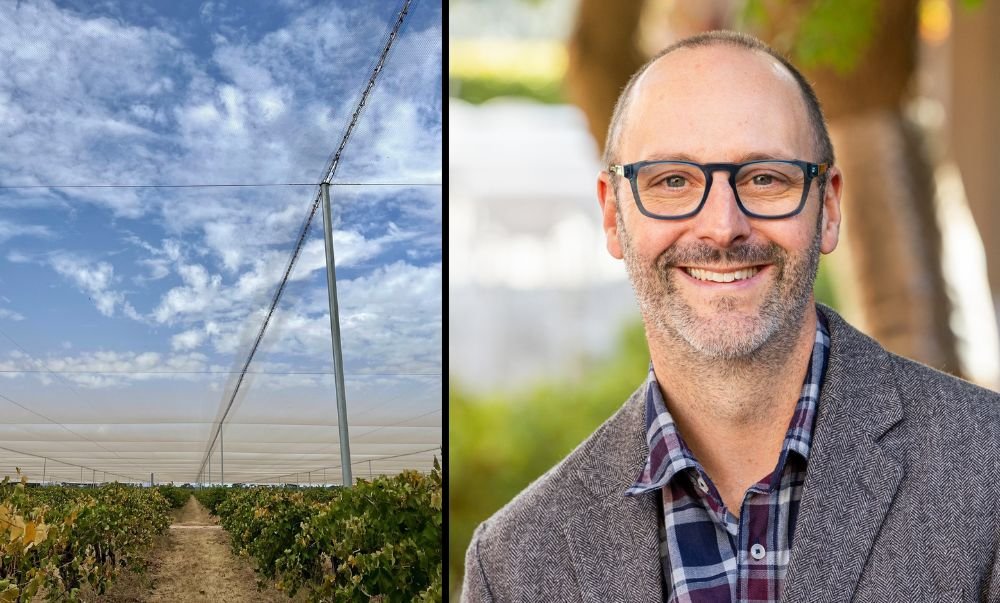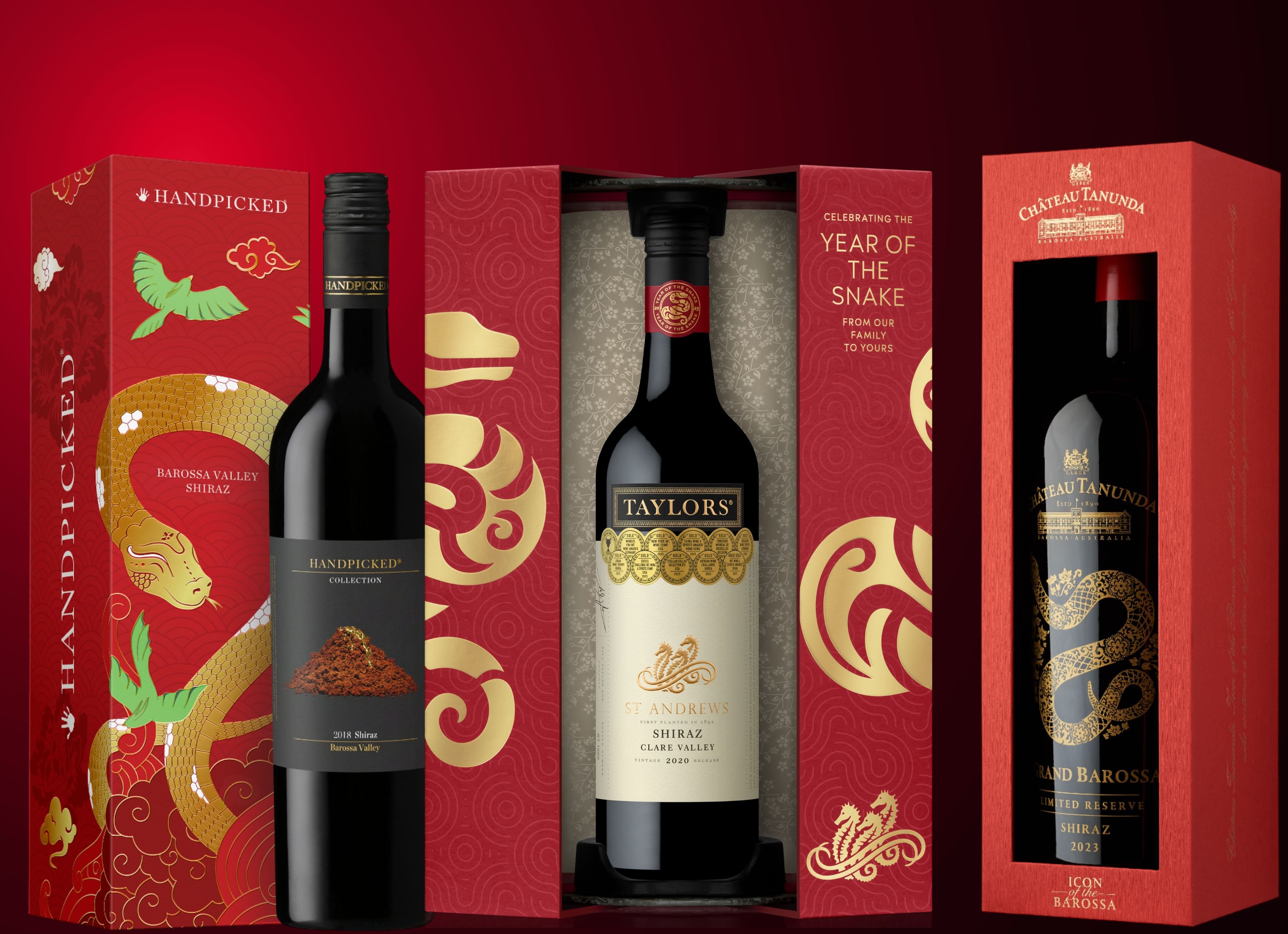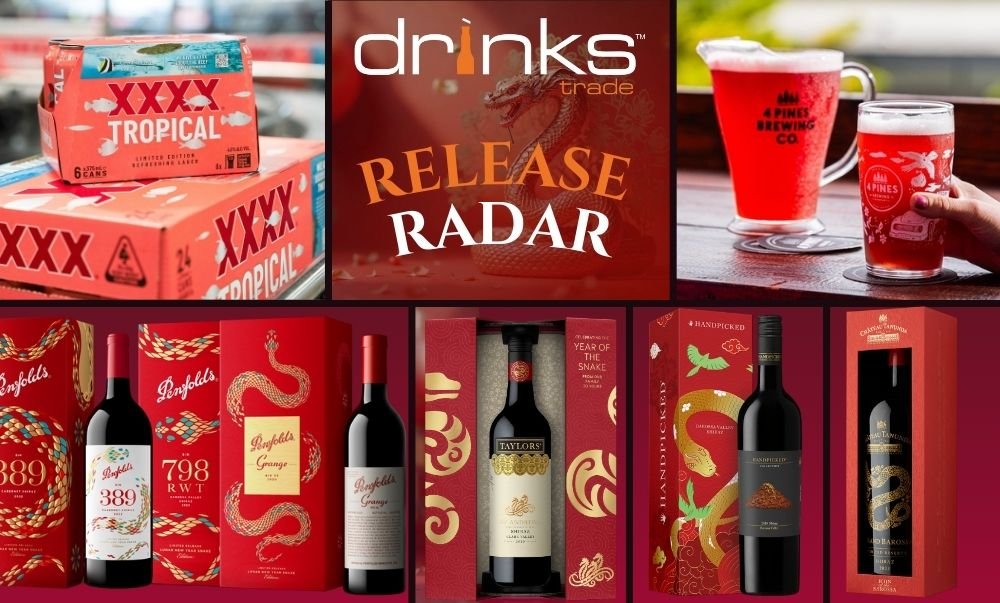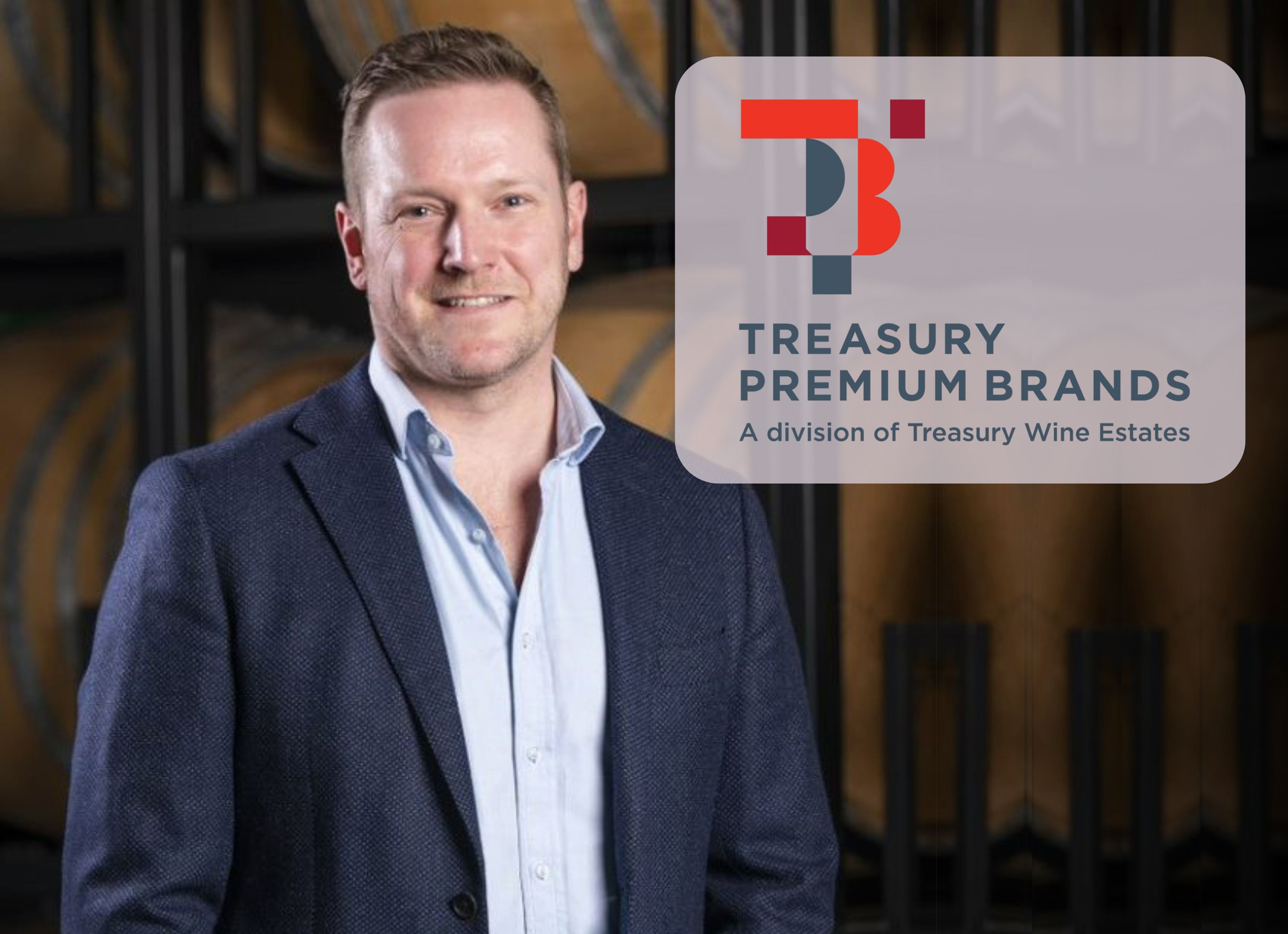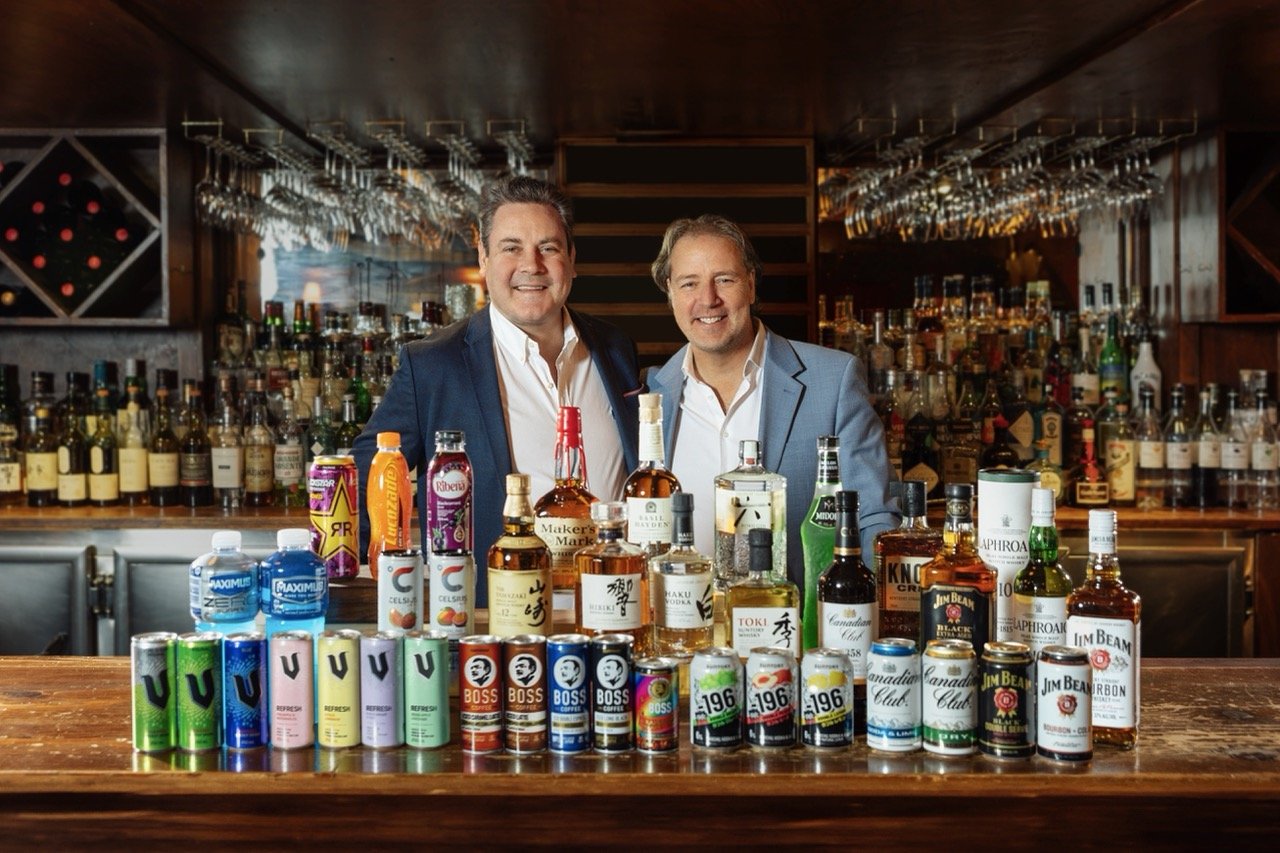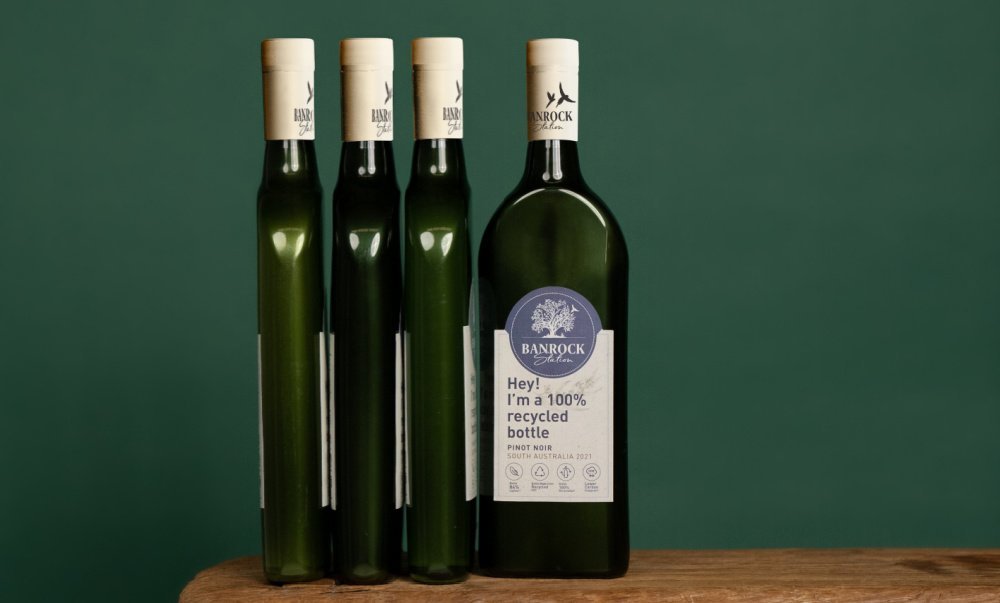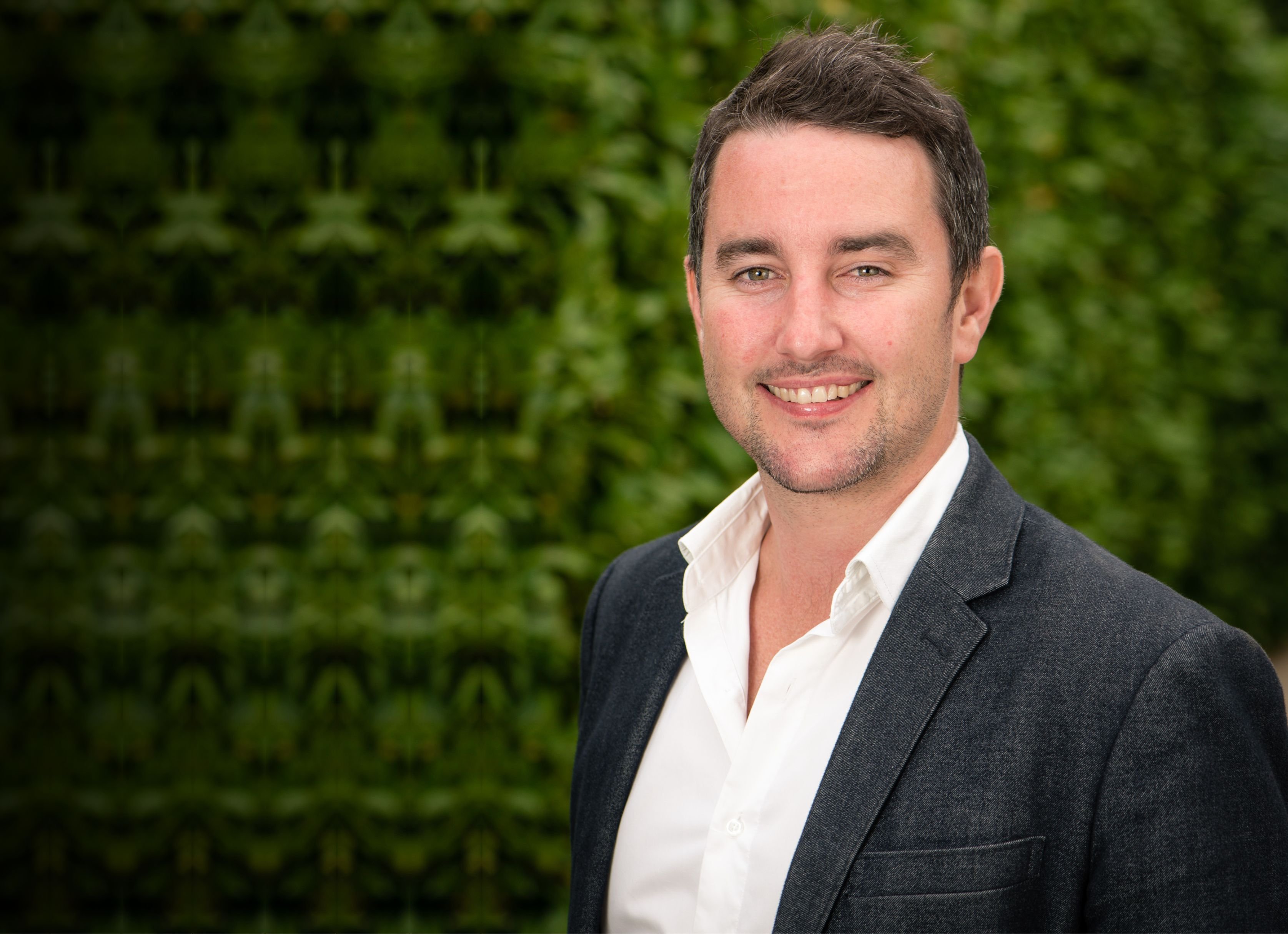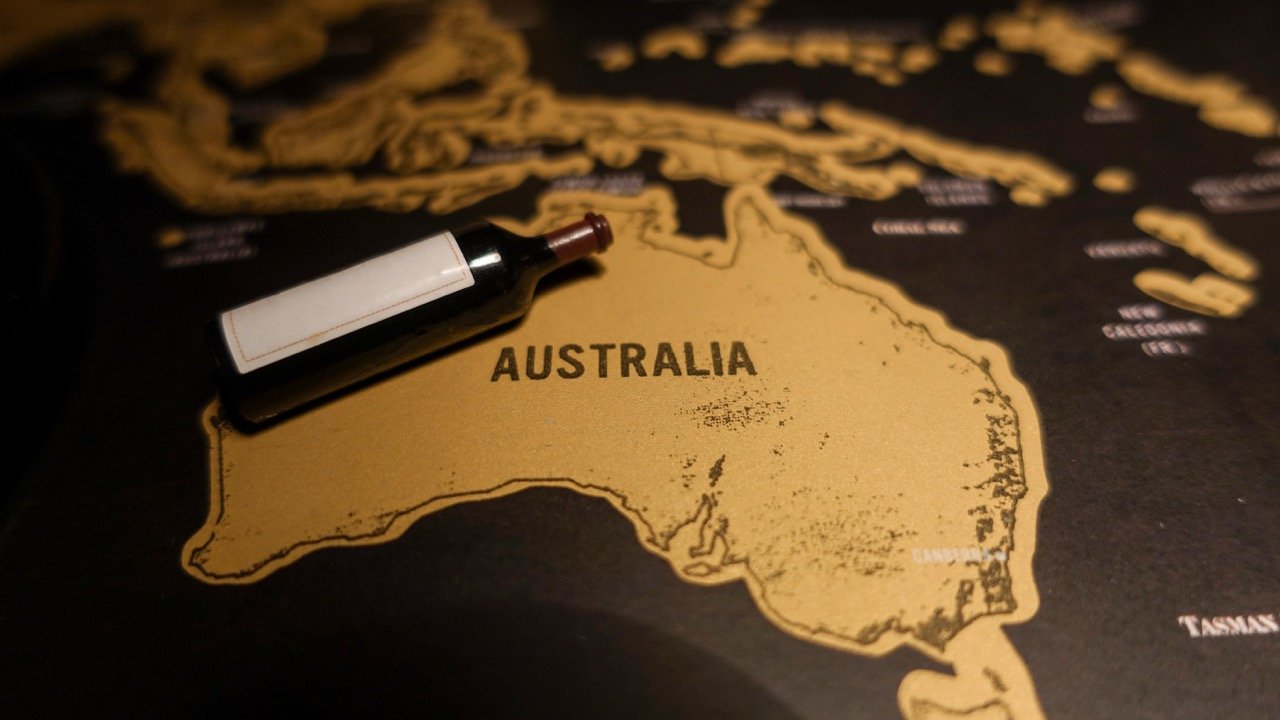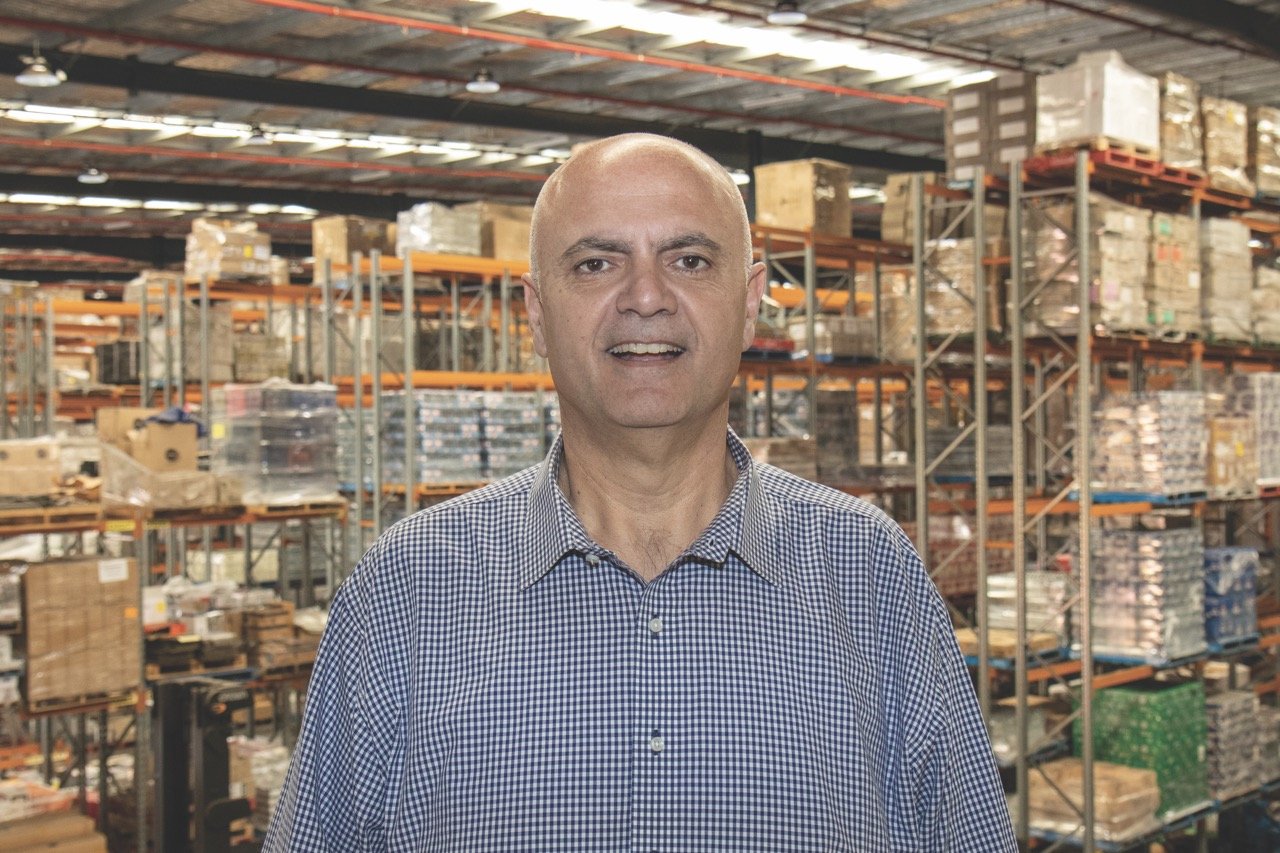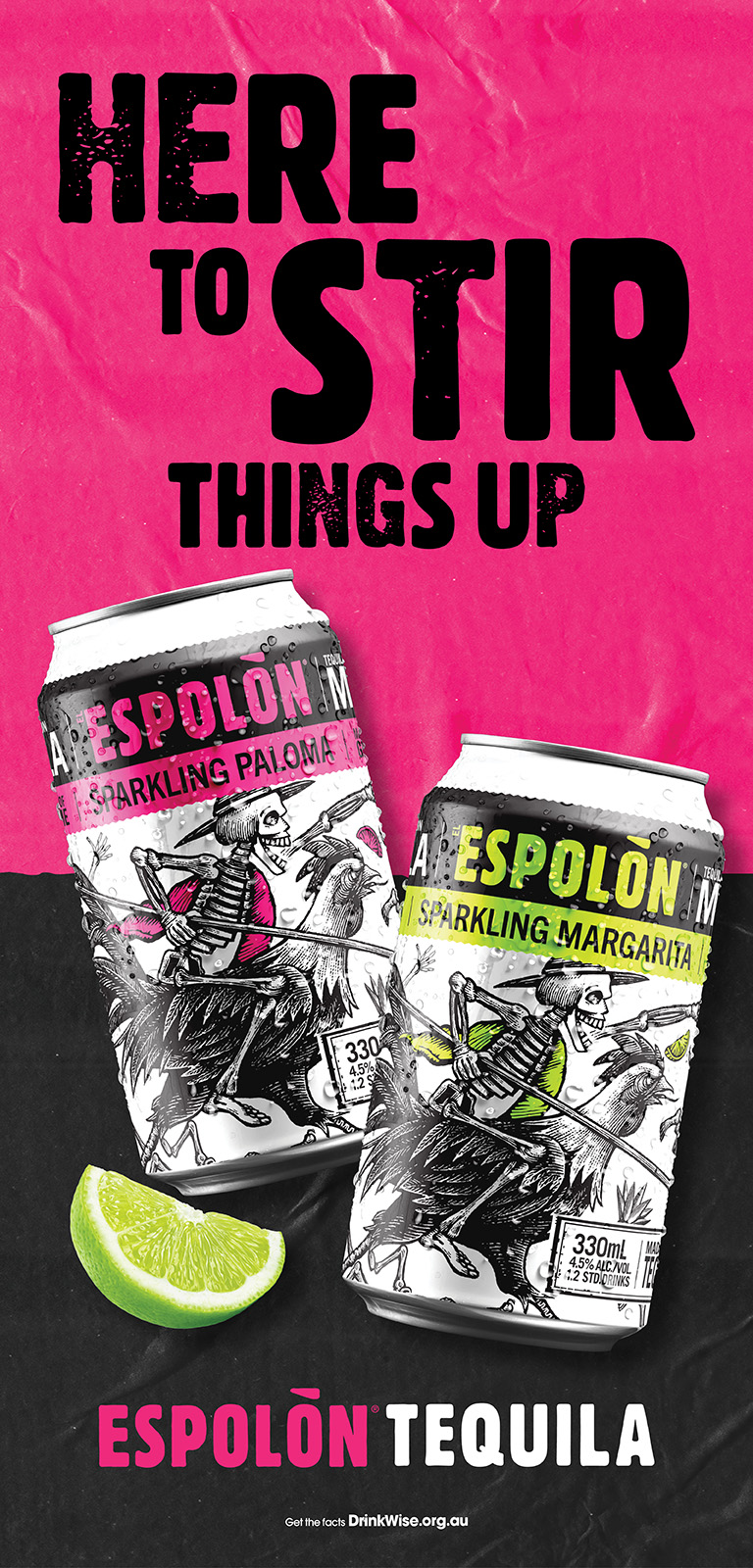In Treasury Wine Estates’ 2024 Sustainability Report, all but one of its 13 sustainability commitments was either achieved or on track. Key milestones achieved included a 66% reduction in greenhouse gas emissions since Financial Year 2021, 24 new solar projects being switched on in the past year, and the installation of smart water metres across 94% of its vineyard sites.
To gain a better understanding of the report and TWE’s focus’ moving forwards, Drinks Trade reached out to Global Director of Sustainability Michael Parks:
Drinks Trade: You’re talking to me from China at the moment... Can you explain what you’re doing over there?
Michael Parkes: Just in Beijing (or a far-flung part of Beijing) at the World AgriFood Innovation Summit, which has been pretty good. Big challenges ahead for us though, I think.
DT: What kind of challenges?
MP: I think just as a globe with an ever-growing population [and] a changing climate, trying to feed that whilst also decarbonising is a pretty complex problem for many countries to grapple with. It's really interesting to hear how technology, innovation, sustainability, collaboration and partnership all need to come together and rather quickly.
DT: There have been rumours that TWE is opening up a new winery in China… How big of a role does sustainability come into the picture when planning a project like that?
MP: I don't think we've put any labels on what we're thinking about doing in China, but we've signalled, I think, that we intend to continue to invest and invest across a range of our value chain. But I think wherever we operate, we've got some global commitments we've made. Regardless of whether the vineyard's in France, Italy or China, we will look to uphold those same standards.
We've got global commitments around renewable electricity and so on, so I think that's just part of what we've committed to do and who we are, and I don't think we shy away from that wherever we operate.
DT: I imagine every market in which TWE is operational must have different sustainability priorities… How do you balance the company’s goals against the expectations of local markets?
MP: I kind of sit in a central sustainability role. so I'm sort of not wedded to either a division or a brand or anything like that. What I do is set the standards, and in some cases they're the minimum standards that will apply, just to make sure that we are moving in the right direction.
The areas I'm focused on are the things that we know are most important for us as a business in terms of where we spend our money and where our impacts are, but also we know they're really important for our stakeholders. And that can be local communities, employees, right through to our customers and investors.
DT: In the 2024 Sustainability report, there is a graph that comparing sustainability priorities of TWE’s internal and external stakeholders… Can you explain how TWE balances its own sustainability goals with those of its investors?
MP: What I'd say is that material is a really useful way of trying to hone in on those topics that are going to be important to the biggest set of stakeholders. And you can imagine as a listed company operating in many markets, there's a lot of issues that we could get involved with, but some absolutely make more sense for us as a business, and they're linked to either where we spend our money or where we are or what our impacts are. That gives us the most effective and pragmatic way of being responsive as a company to those concerns and opportunities, but also helping to sort of respond and give stakeholders the information and progress they expect or are interested in from a company like us.
DT: The report says, “Our sustainability strategy reflects the areas where we can make the greatest impact.” Can you discuss which areas of sustainability are the most efficient, and which have been deemed less effective?
MP: I think the areas that are most important for us are articulated in our strategy, and they generally fall into three buckets. The first is about building a resilient business, and this really acknowledges that the world is going to change, and to be successful in a climate-exposed company like ours, we need to build resilience into our business, into our thinking and processes. So climate change, energy and water are the three big topics that sit in that area.
The second pillar for us is around fostering healthy, inclusive communities. This is where we see things like diversity, responsible consumption, as well as our commitment to health, safety and wellbeing come to life, and so it's really where the people sit in our strategy.
Then the final sort of pillar is around producing sustainable wine… It's what we're here to do, and so we want every consumer to be able to enjoy wine that's produced responsibly and sustainably.
DT: And now to flag a couple of the key talking points from the Sustainability Report… Firstly, water - total water consumption at TWE is trending downwards, but efficiency is also decreasing. Can you explain why this is?
MP: I think the challenge there really is, as we transition to being more a luxury world business, what we're seeing is that our traditional way of measuring efficiency is going the wrong way because when the fruit hits the winery, we hold every package of fruit separately, and so what that means is lots and lots of smaller batches as opposed to, you know, when you're sort of doing more commercial style, you can have 100,000 litre tanks, those sorts of things where you're maybe holding wine and fermenting… Whereas as we're a more luxury world, we're handling each package individually, and what that means is after each step of the process, we obviously need to clean and do all those things, and so your efficiency is impacted as a result.
DT: As TWE pushes further towards premium, is there any temptation to enter organic wine production?
MP: I'd say that, for us, organic is probably not the answer in terms of it does have some particular challenges. Some benefits, but also some challenges. For a company like us, it doesn't make complete sense. We're not seeing hugely strong signals for consumers around organic. And what we think is [that] a much more holistic view of sustainability is more important, one that sort of prioritises not only environmental (which organic does) but also social and community-based outcomes.
Taking a much more sort of, you know, holistic view of sustainability is where we're positioning ourselves as a company.
DT: The other point I flagged when reading the Sustainability Report is having more women in senior leadership positions - which was the only sustainability goal currently not on track at TWE.
MP: I think, first and foremost, we've made pretty good progress. The target was set before my time. I'm not sure if it was F20 or F21, something like that. but since F20, we've increased the overall representation of women in leadership by 6 percentage points.
That is pretty incredible progress/we're very close to that 50% mark. But we're a harsh marker here at Treasury and we just don't think we're going to get there before the end of that target. Now, there's some challenges. Obviously, senior leadership is a very small cohort (I think it's a couple of hundred people at most) and so some decisions - whether they're ours or people's/ whether to stay with a company or to leave or to join - can have a material impact on that number because you're dealing with such a small population base. But what we have seen is just that trend increase over time.
Diversity, inclusion and equity are incredibly important to us as a company and we'll continue to advance equity and inclusion wherever we operate.
DT: How does TWE set its sustainability policy and how flexible is it to changing priorities/demand?
MP: We set this strategy three years ago and it served us very well, I don't think there's any intention of shying away from the strategy and I think as I look forward over the course of next calendar year, a lot of our commitments will reach their end of life and the diversity is a good example of that one, and so we're already starting to think about what's the next wave of sustainability for us. How do we step up the ambition and really start to deliver leadership in all its forms around innovation, technology, collaboration, et cetera, across industry?
I know there's lots of sort of economic headwinds in general and particularly in the wine industry, but I think that's the sort of clear point of difference that I feel. I'm not having conversations with the execs or the board about how we step back. It's more about how we go faster and go louder. So it's probably a different spot to many organisations.
DT: How does being a large-scaled wine producer make it easier or harder to implement sustainability initiatives?
MP: For me, if you're a single vineyard, you can make some amazing interventions on your property to make it more sustainable and craft a beautiful narrative around that to engage your consumers and employees. So being small is sometimes easier. But being large also has its benefits.
I think, for me, one of the luxuries of being a large wine producer is that I can invest in understanding climate risk and in piloting and trialling a range of adaptations, so different ways of doing things that are going to be incredibly important to solve for the longer-term problem of climate change. But what we're seeing is also that these adaptations give us a really nice buffer from some of the volatility, if you like, in weather, and the canopy example in the Barossa is a really good example of that. This was a five-year pilot that we started this year and we had a lot of questions around what might happen. There was a bit of a, dare I say, a risk in storing the canopy over one of your most prized vineyards… We had a pretty good understanding of things that it might do, but also we weren't sure how it would affect a whole heap of other things - so, you know, the size of the micron in terms of the canopy: whether that was going to be important in sort of letting UV light through?; the fact that it was enclosed: were we excluding beneficial insects and predators such as birds for those insects or trapping them in? - and so there's a whole range of things, which is why it was sort of a five-year pilot… But the first season proved to be really great. We saw fantastic colour development, reduced water use, you know, all the really positive things that we'd hoped to see.
That's how we plan on sort of demonstrating our leadership as a large wine business. We have the luxury of seeing what works and what doesn't, and then it's on us to share that with the industry and to bring it on the journey with us.
DT: Developing that further, do you have any advice for trade who might be considering expanding their sustainability programs?
MP: I think first and foremost, I'd say we have had no regrets about transitioning to renewable electricity. Particularly, we know that climate change is a problem and we need to play our part, but what we have seen is really good commercial outcomes, if you like. Most of our projects have, in their initial business case, exceeded the sort of internal paybacks that we need. Since then, we were very conservative on energy prices and since then we've had the war in Ukraine and all sorts of other shocks and we've seen energy prices just absolutely skyrocket. Being more self-sufficient with a lot of your electricity use has been a very significant factor in helping us to manage costs in particular. We know that's important because about 70% of our emissions come from Scope 1 and 2. 70% of our Scope 1 and 2 emissions are from just electricity, so that's making a substantial contribution in a way that makes sense for business.
The other thing I'd say is that it's a really powerful cultural phenomenon. Most people that work in wine are passionate about the land and water and being able to tap into that and engage your employee base and make them feel good about what you're doing as a company is something that's incredibly powerful. And so that was one of the biggest drivers for us sort of ‘stepping up’ in terms of sustainability three years ago, and I think that holds true now and that sort of cultural phenomenon is something that I think is very powerful in an organisation.
In terms of other things, I think certification makes perfect sense. It starts to be able to prove to consumers we know our customers, so the large supermarkets and retailers globally are increasingly asking about these and in some instances expecting them for tenders and things like that. So I think that sort of gives a future proof to your business.
You sort of can't ‘flip the switch’ in terms of certification. There's a number of steps and timeframes involved. And so taking the steps on that journey now so that you're already in the market demands; it is absolutely critical, I think.
DT: Turning towards the future, TWE has a net zero emissions goal by 2030, I believe?
MP: Yeah, for our scope one and two, so that obviously deals with the emissions that we have direct influence for as a company. We know that's not it though. We know we need to start to work with our supply chain. Obviously, certifications are a step along the pathway, but there is more work to be done to decarbonise and have those partnerships and sort of joined up thinking with suppliers around sustainability. So definitely pushing more in that space.
[Also], I think nature and biodiversity has been rising up conscience of many in terms of climate change perspective for a couple of years now, and so we've been taking a number of steps. We're reducing our sort of inputs in terms of pesticide use and doing all sorts of things around changing our farming practises.
I think the other aspect really is water. Water is critically important for every agricultural company, and one of the things that we're very conscious of is operating some water stress catchments… We've got a strategy that is obviously starting to build a good understanding of where and when we use water. But also some of the real interesting things around how we're using that water efficiently.
We've just covered three dams in the Barossa (which is quite an engineering feat; it's quite complex to put a lid on a dam). I think mining dams is relatively common - that solves for seepage, which is about 10% of loss generally each year - whereas evaporation can be 30% to 40% depending on dam structure and things like that, and so if you stitch that together, some dams could be losing half their water every year to loss. And so really being efficient and effective with the water we use is going to be incredibly important for us.
DT: Finally, how does TWE’s progress towards sustainability compare to other wine producers globally?
MP: Yeah, look, this is a really hard one, believe it or not. I always try and look out across industry and peers to try and see how we're tracking. I think the wine industry is quite unique in that there's quite a substantial difference in structures. So you've got your ‘mum and dad’ producers all the way up to a list of businesses. Then you've got, within that, a variety of organisations who may not necessarily need to report or disclose what they're doing, so you could have their family-owned businesses or private equity-owned, etc., who don't have the same reporting obligations as a listed company, and so the transparency of our progress is challenging. And then also you've got the nuances of terroir, where how you farm in New Zealand is going to be very different to how you farm in Italy, for example, and so trying to sort of do these comparisons and say, oh, they're not using any water there versus we're using all this water here just doesn't really work.
What I would say is that, you know, we've got a bunch of commitments, and I think where those commitments are focused generally light up across the industry. Not completely - not every company's doing what we're doing - but what we're seeing is that a lot of other large wine producers are also switching to renewable electricity. Our thing is we're moving a bit quicker than everyone else at this point, but there are pockets of brilliance wherever you look in the wine industry, right? And so I think it's about understanding those and then understanding how we can scale them for our business.
Because that's the real challenge for a business like ours: it's sort of the scale game as opposed to a single innovative project. If you're a smaller wine producer, you can fundamentally change a business, but you may only need to do one thing to do that, whereas we may need to replicate that 60 or 70 times to achieve the same outcome.
//
TWE buys back $25.2m of water licenses linked to vineyards it was looking to sell
TWE’s $10m winery automation system will increase production capacity by 60%
TWE’s profits drop 60% following commercial brands sale, strong positioning for FY25
Share the content
